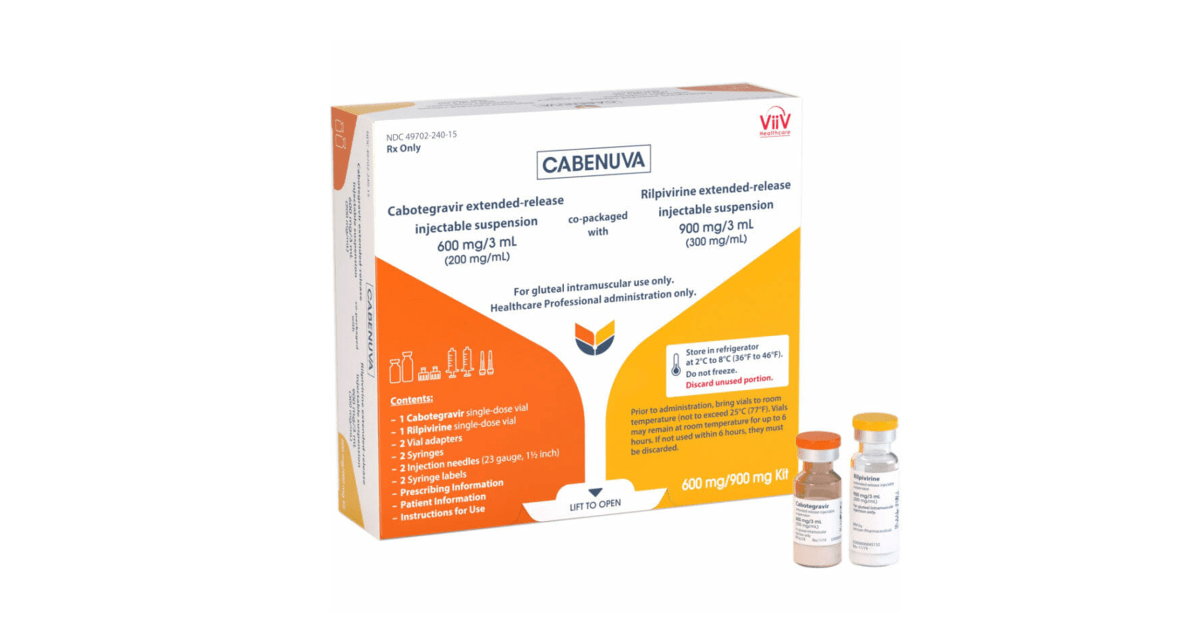
The Food and Drug Administration is slated to issue a decision about cabotegravir’s use as PrEP by early 2022. Gilead’s twice-yearly injectable and a monthly pill from Merck called islatravir could similarly get the green light by 2025.
Cost could be a barrier
Federal agencies recently advised health insurers that nearly all of them are now required to cover daily PrEP with no out-of-pocket expenses, including for the medication and the associated clinic visits and lab tests.
But these measures are not expected to apply by default to any newly approved form of PrEP, including cabotegravir. So, insurers could potentially demand substantial copays or other fees for that injectable medication — provided payers cover a drug that will likely have a much higher list price than the $30 per month that the cheapest generic Truvada costs.
ViiV’s recently approved monthly injectable HIV treatment, Cabenuva, which includes cabotegravir plus the drug rilpivirine, costs $3,960 per injection, while brand name Truvada retails for $1,840 and Descovy costs $1,930 per month.
The U.S. Preventive Services Task Force would need to give cabotegravir a recommendation, as it gave to daily PrEP two years ago, as an intervention with an evidence-based net benefit to ultimately eliminate out-of-pocket costs for cabotegravir. This process could take years.
A pair of large surveys of gay and bisexual men presented last week at the 11th International AIDS Society Conference on HIV Science found substantial interest in long-acting PrEP, but also worries about the potential associated financial burden, especially among men of color and those who reported riskier sexual behaviors. Plus, many men expressed preference for novel HIV-prevention medications that require dosing even less frequently than every other month. Those men’s wish could very well be granted — in time.
Giving patients more choice
According to Brad Hare, the HIV clinical director for Kaiser Permanente in San Francisco, “The next generation of PrEP is going to be about individualization,” in which multiple forms of medication-based HIV prevention provide at-risk individuals “the options that work best for them at any given time in their lives.”
Sharon Hillier, a prominent HIV researcher at the University of Pittsburgh, presented interim findings at last week’s conference from a mid-stage PrEP study of islatravir. After participants took six monthly doses of the aspirin-sized pill, they still had concentrations of the drug in their blood that are projected to be protective against the virus even eight weeks later.
Merck recently started recruiting participants for a pair of major trials that will compare islatravir’s efficacy as a monthly form of PrEP to daily doses of Truvada or Descovy. Gilead is launching its own pair of large efficacy trials for lenacapavir as HIV prevention, following promising research in monkeys. Results for both pairs of trials are expected in 2024.
In March, Merck announced promising results from an early human safety trial of an islatravir-infused subdermal implant and its plans to begin a larger, midstage study of the implant as protection against HIV lasting up to 12 months.
Attendees of the recent conference also learned about early development at the University of North Carolina of a removable and biodegradable implant that delivered antiretroviral drugs in mice for up to 180 days.
Additionally, the HIV Vaccine Trials Network is developing cocktails of antibody treatments that investigators hope will eventually prove efficacious as prophylaxis against HIV.
Green of Howard Brown said that adding these myriad prevention options to her armamentarium could aid her determined effort to put her patients in the driver’s seat when it comes to protecting themselves against HIV.
“When a patient is a leader in their choice, in their medical decision-making, the outcomes are always better,” she said.
“I always say that the patient is Batman. We’re Robin.”
Source: | This article originally belongs to Nbcnews.com









